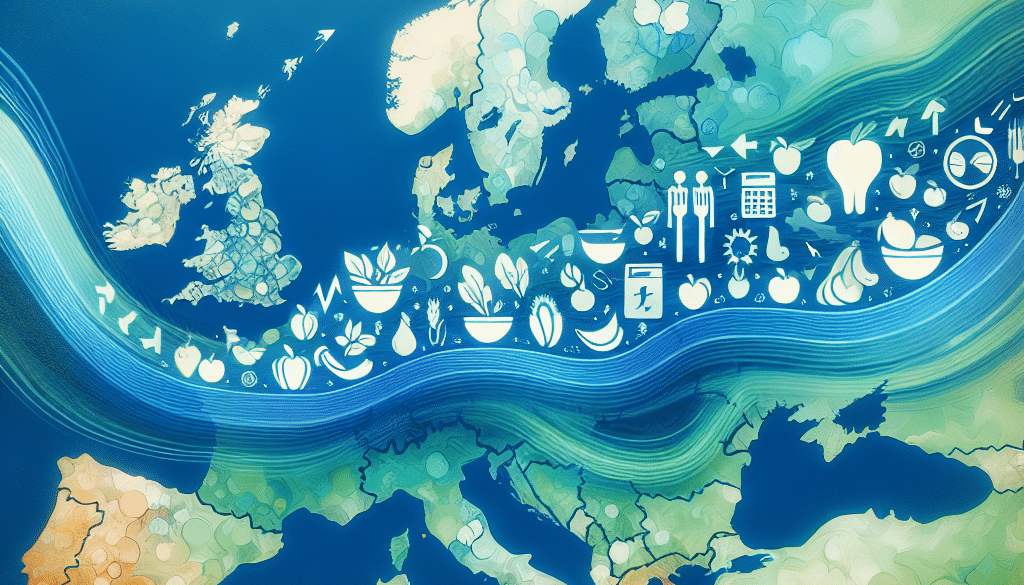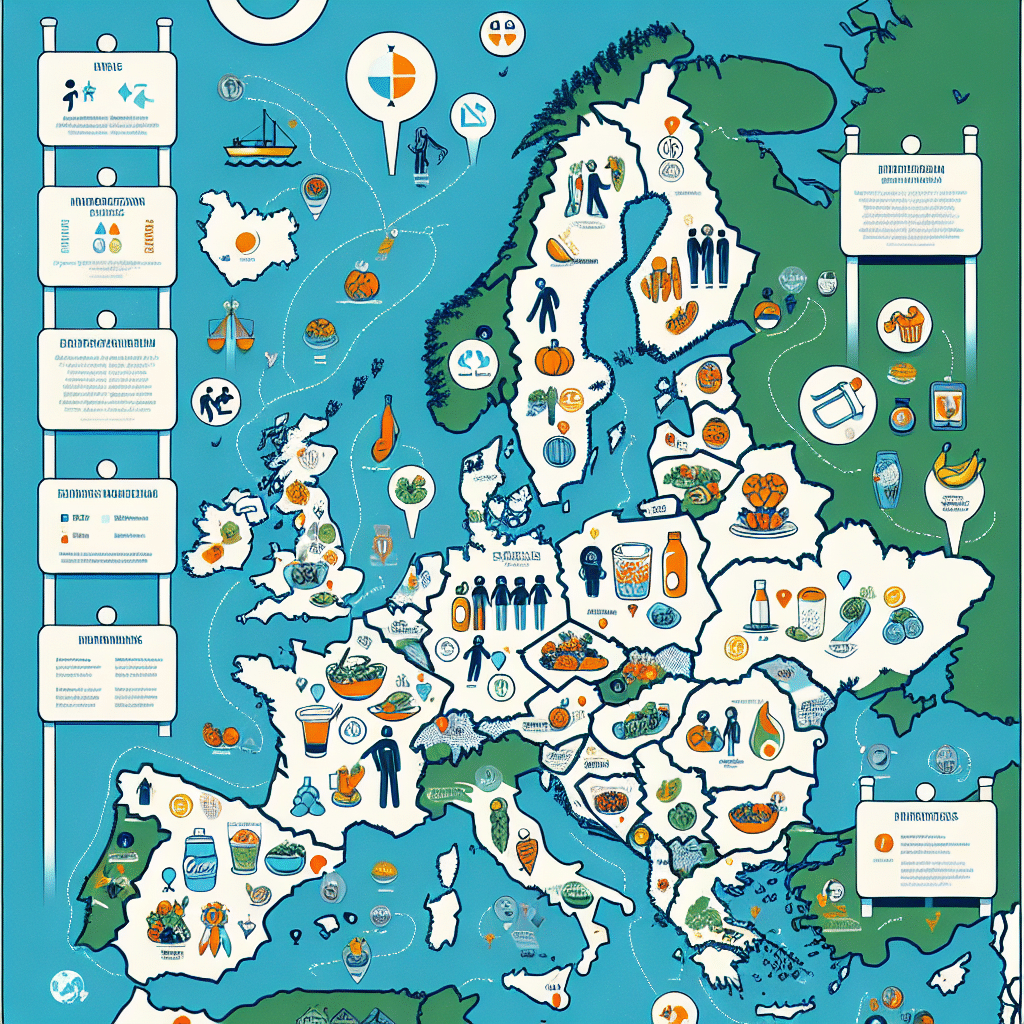Calorie Reduction in Europe: Initiatives Continue to Spread
-
Table of Contents
- Calorie Reduction in Europe: Leading the Way to Healthier Lifestyles
- The European Calorie Reduction Landscape
- Government-Led Initiatives
- Industry Commitments
- Case Studies: Success Stories and Challenges
- UK’s Sugar Tax
- Challenges in Consistency and Enforcement
- Impact on Public Health
- Future Directions
- Conclusion: A Healthier Europe in Progress
- ETChem: Supporting Healthier Choices with Quality Protein Products
Calorie Reduction in Europe: Leading the Way to Healthier Lifestyles
As obesity and related health issues continue to pose significant challenges across Europe, governments, organizations, and food manufacturers are increasingly focusing on initiatives to reduce calorie intake among the population. These efforts aim to combat the rising trend of obesity and encourage healthier eating habits. This article explores the various strategies and programs implemented across Europe to promote calorie reduction, their effectiveness, and the role of industry players in this critical health movement.
The European Calorie Reduction Landscape
Europe has been at the forefront of addressing the obesity epidemic through a variety of public health initiatives. These range from educational campaigns to legislative measures targeting the reduction of calorie consumption. The European Union (EU) has been particularly active in this area, with policies that encourage member states to take action on the nutritional content of food and beverages.
Government-Led Initiatives
Several European countries have introduced measures to reduce calorie intake among their citizens. For example:
- The UK’s Public Health England launched the ‘Sugar Reduction: Achieving the 20%’ program, which aims to cut sugar levels in popular foods by 20% by 2024.
- France has implemented a ‘Nutri-Score’ labeling system that rates food products based on their nutritional quality, helping consumers make healthier choices.
- Norway has increased taxes on sugary drinks and snacks to discourage consumption.
These initiatives are complemented by EU-wide actions such as the ‘Farm to Fork Strategy,’ which includes ambitions to make food systems healthier and more sustainable.
Industry Commitments
Food and beverage companies across Europe are also taking voluntary steps to reduce calories in their products. This includes reformulating recipes to contain less sugar and fat, as well as introducing smaller portion sizes. Major industry players have pledged to reduce calories as part of broader health commitments, often in partnership with public health organizations.
Case Studies: Success Stories and Challenges
Examining specific case studies provides insight into the effectiveness of calorie reduction initiatives:
UK’s Sugar Tax
In 2018, the UK introduced a Soft Drinks Industry Levy, commonly known as the ‘sugar tax.’ This policy led to a significant reduction in sugar content in soft drinks, with many manufacturers reformulating their products to avoid the tax. A study by Public Health England found that between 2015 and 2018, there was a 28.8% reduction in the sugar content of soft drinks subject to the levy.
Challenges in Consistency and Enforcement
While some initiatives have shown promising results, challenges remain in ensuring consistency and enforcement across Europe. Differences in national policies and the voluntary nature of industry commitments can lead to uneven progress. Additionally, there is a need for ongoing monitoring and evaluation to ensure that calorie reduction goals are met.
Impact on Public Health
The impact of calorie reduction initiatives on public health is a critical consideration. Studies have shown that even modest reductions in calorie intake can lead to significant health benefits, including lower rates of obesity, type 2 diabetes, and cardiovascular diseases. By promoting healthier food environments, these initiatives contribute to the overall well-being of European citizens.
Future Directions
Looking ahead, Europe is poised to continue its leadership in calorie reduction efforts. The focus is likely to expand beyond sugar to include other nutrients of concern, such as saturated fats and salt. Additionally, there is a growing emphasis on the role of technology and innovation in promoting healthier food choices, such as through apps that track nutritional intake or personalized nutrition advice.
Conclusion: A Healthier Europe in Progress
Calorie reduction initiatives in Europe represent a concerted effort to address the obesity epidemic and promote healthier lifestyles. While challenges remain, the combination of government policies, industry action, and public awareness campaigns is making a positive impact. Continued collaboration and innovation will be key to ensuring the long-term success of these initiatives and the health of European citizens.
ETChem: Supporting Healthier Choices with Quality Protein Products
In the context of calorie reduction and healthier eating, protein plays a vital role in maintaining a balanced diet. ETChem, a leading Chinese Collagen factory manufacturer and supplier, offers a range of high-quality protein products that can support the goals of calorie reduction initiatives in Europe.
Their products, including marine collagen, fish collagen, bovine collagen, and various types of collagen, are ideal for incorporation into health-focused food and beverage products. With attributes such as neutral taste and instant solubility, ETChem’s collagens are suitable for a wide array of applications, from sports nutrition to weight management and general wellness.
For European distributors, traders, and manufacturers looking to enhance their offerings with protein-rich options that align with calorie reduction goals, ETChem provides comprehensive solutions. Their commitment to quality and customer service makes them a trusted partner in the industry.
About ETChem:
ETChem, a reputable Chinese Collagen factory manufacturer and supplier, is renowned for producing, stocking, exporting, and delivering the highest quality collagens. They include marine collagen, fish collagen, bovine collagen, chicken collagen, type I collagen, type II collagen and type III collagen etc. Their offerings, characterized by a neutral taste, instant solubility attributes, cater to a diverse range of industries. They serve nutraceutical, pharmaceutical, cosmeceutical, veterinary, as well as food and beverage finished product distributors, traders, and manufacturers across Europe, USA, Canada, Australia, Thailand, Japan, Korea, Brazil, and Chile, among others.
ETChem specialization includes exporting and delivering tailor-made collagen powder and finished collagen nutritional supplements. Their extensive product range covers sectors like Food and Beverage, Sports Nutrition, Weight Management, Dietary Supplements, Health and Wellness Products, ensuring comprehensive solutions to meet all your protein needs.
As a trusted company by leading global food and beverage brands and Fortune 500 companies, ETChem reinforces China’s reputation in the global arena. For more information or to sample their products, please contact them and email karen(at)et-chem.com today.





